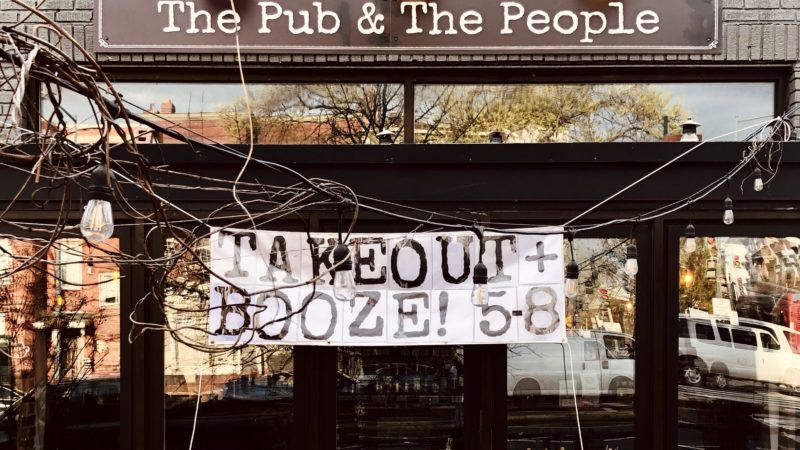Washington, D.C., May Permanently Legalize To-Go Cocktails
If there's a silver lining for the bars and restaurants that have been hit by the COVID-19 lockdowns, it's the widespread loosening of liquor laws.

If there is a silver lining for the bars and restaurants that have been hit by the COVID-19 lockdowns, it has been the widespread loosening of liquor laws.
Across the country, cities and states have allowed for the sale of to-go cocktails and other types of alcohol for off-premise consumption. It won't save the bar business, but it has turned into a temporary lifeline for many purveyors of fine drinks—and a new convenience for anyone stuck at home who still wants to imbibe.
With any luck, however, those temporary lifelines will become permanent reforms. And that might start in Washington, D.C.
Barred in DC, a blog covering the area's bar scene, reports that Mayor Muriel Bowser is proposing to change the city's liquor laws to make to-go cocktail sales permanent (probably with a food-purchase requirement) while expanding the hours during which off-premise liquor sales are allowed. To-go drinks were initially allowed on a temporary, emergency basis. Under proposed changes in a recent Fiscal Impact Statement, those emergency rules would be made permanent. In some ways, it's fitting for an industry that has found itself in what feels like a permanent emergency.
Nor is Bowser the only politician talking about permanently extending the new liquor regime. After extending the state's to-go allowances, Texas Gov. Greg Abbott tweeted last month that he might just let the new rules stay in place forever.
Alcohol-to-go sales can continue after May 1.
From what I hear from Texans, we may just let this keep on going forever.#txlege
— Greg Abbott (@GregAbbott_TX) April 29, 2020
This is good news. More cities and states should follow.
Many of the restrictions that have been lifted are hangovers from the decades after Prohibition when laws restricting public drunkenness became laws restricting public alcohol consumption of any kind—which meant bars had to restrict sales to on-site consumption. As Jacob Grier wrote for Reason last week in a piece arguing for ending open container restrictions that prevent the consumption of alcohol in public spaces, enforcement of these types of laws has tended to fall most heavily on minorities.
A lot of places are allowing bars and restaurants to offer takeout and delivery drinks. DC looks like it may be the first to make this permanent.
I've gotta say, my predictions for the pandemic did not include widespread liberalization of alcohol laws, but I'm not mad about it. https://t.co/VdVXGSJ5YZ
— Jacob Grier (is not here) (@jacobgrier) May 19, 2020
The coronavirus and the state-mandated business closures it has wrought have been unquestionably awful for the bar and restaurant business. Some estimates suggest that a quarter or more of all U.S. restaurants will never open again. We've already lost important places like Pegu Club, one of the world's greatest cocktail bars, and more such closures are likely to follow. Permanently loosening alcohol sale and consumption restrictions won't undo the damage that's been done. But maybe, just maybe, when the world does eventually reopen, it will be with alcohol consumption policies that are more sensible and flexible.


Show Comments (27)